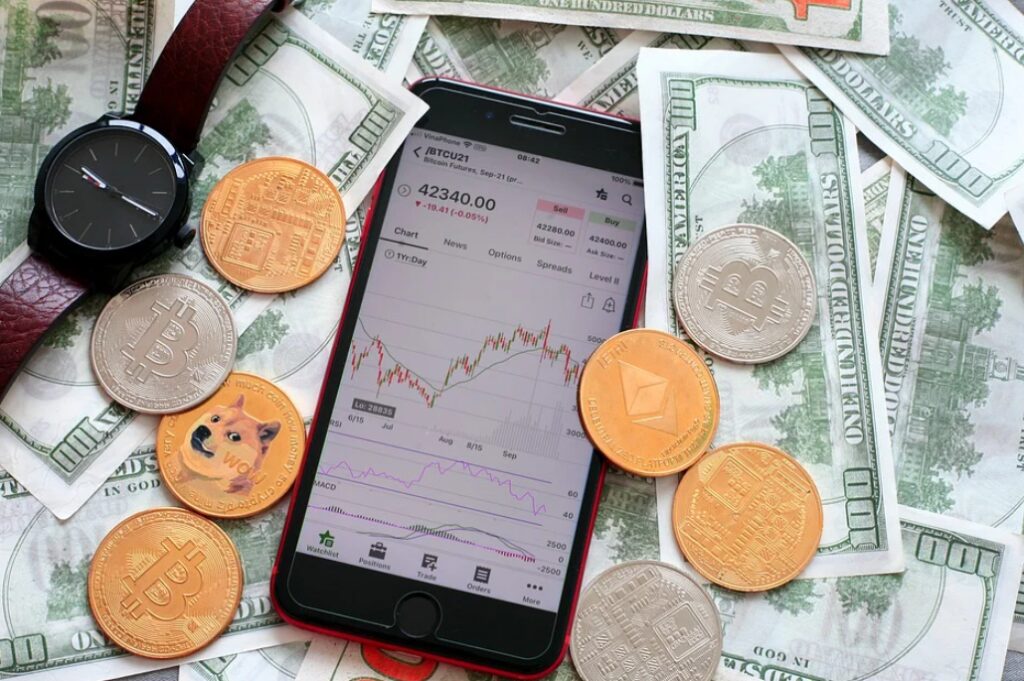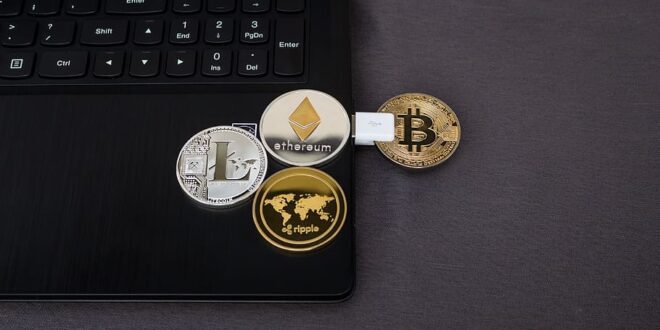So you have finally decided to jump on the hype train and join the ever-growing community of cryptocurrency enthusiasts, investors, and traders. First of all, welcome!
Second of all, it is time to get going as strong as possible right from the very start. You have already missed a lot of the good things to be moving slow now. You need to learn all of the basics as soon as you can and start doing real work the right way. What this means is learning the basic terminology, opening your first trading accounts on exchanges, and buying your first batch of currencies.
Before all of that can happen though, you must learn a thing or two about how Bitcoin and the rest of the cryptos are stored. By now you probably know all about what they are, what they are used for, and how more are created. They are hardly a novelty item on the world market and they have after been in the popular media for the better part of the last decade or so. The biggest thing about virtual assets that we will be dealing with today are electronic wallets, also known as crypto wallets.
As their name suggests, they are used for storing and safekeeping your crypto balance. When you need to use it in any way and in any volume, you get to access your wallet just like you would take out your physical, regular wallet to pay for something with cash or card. However, there is much more to it when cryptos are concerned. Things are not that simple and there are a few things to get out of the way. In this article we talk more about this, particularly about the best wallets for Bitcoin and other cryptocurrencies. To find out more about this, as well as to check out one of the best wallet solutions available right now, make sure to check out Crypterium.
Different Wallet Types and Keys

Before talking about the best wallets out there, we need to devote some words to the different types that exist. Moreover, you have to learn what each of them is used for and what makes them better than the rest. The basic distinction is rather simple as it is all about whether or not the wallet is connected to the internet. Hot wallets are connected to the web, and cold wallets are not.
Hot wallets are therefore less secure, highly accessible from anywhere, but more vulnerable to frauds, scams, and hackers. They are however also more user friendly and optimal to use. On the other hand, cold wallets exist off the internet and offer greater security. They are practically small private vaults you carry around that only you can access when there is a need for a transaction. Some can still be connected to the internet, others cannot.
Another important thing to note here are the keys needed to use the wallets. If you want to exchange cryptos, purchase something with them, send them or receive them, or convert them into traditional money, you will require two keys. The first is the public key, and the second is the private key. Both are alphanumerical and unique. You must not lose them as they are untraceable. If you do, you will lose all of your balance. Your wallet basically acts like a digital bank account that stores the private keys of other users too, so there are security protocols involved too.
Which is the Best?

Next up on our list are the types of hot and cold wallets, each with different features, security levels, and uses. Do you go with an online, mobile, or desktop wallet? How do you choose? Which one is the best for your Bitcoins and other crypto assets? Well, it is not that simple as all of them are useful. Many users have multiple, or one of each, and they use them based on their current needs.
Online or web wallets exist on the internet and the users access them through their web browsers. Just like a website or an online service, you log in and use them as you like. It is not recommended that you store everything you own with one of these due to lighter security they offer. However, they are the fastest to use when it comes to making transactions and management of multiple currencies at once.
Mobile wallets act like smartphone apps that you download to your device and install. Similar to your banking app, they help you access your balance and do business easily and optimally through your mobile phone. They are hot of course as they require constant internet access, but they are more secure than online wallets. These apps come with QR codes for payments, facial and fingerprints locks, and other features that are only available on mobiles. They are the favorites among users and most of them have a wallet like this for convenience purposes. Apps usually do much more and double as crypto hubs for everything else you may need, from finding contacts to staying in touch with the latest news.
Desktop wallets are more secure than both the online and the mobile varieties. They exist on the computer but they are in the offline mode. Therefore, they are cold but some can also act as hot wallets. Caution is still advised because computers are still prone to cyber-attacks because the internet is needed for other things and hackers may still get to your wallet balance despite it being offline itself.
Best Ones in the Industry

Last but not least, here are some of the best wallets you should seriously consider right now:
1. Exodus – Best overall wallet for crypto beginners, very beginner-friendly
2. Electrum – Best wallet for advanced users, especially Bitcoin
3. Mycelium – Best mobile user wallet available, a free hot wallet
4. Ledger Nano X – Best hardware wallet to go with and the industry standard
5. Trezor Model T – Most secure model available right now, supports over 1,600 cryptos
6. Ledger Nano S – Most features for the price, best bang for the buck, open source
 Imagup General Magazine 2024
Imagup General Magazine 2024



